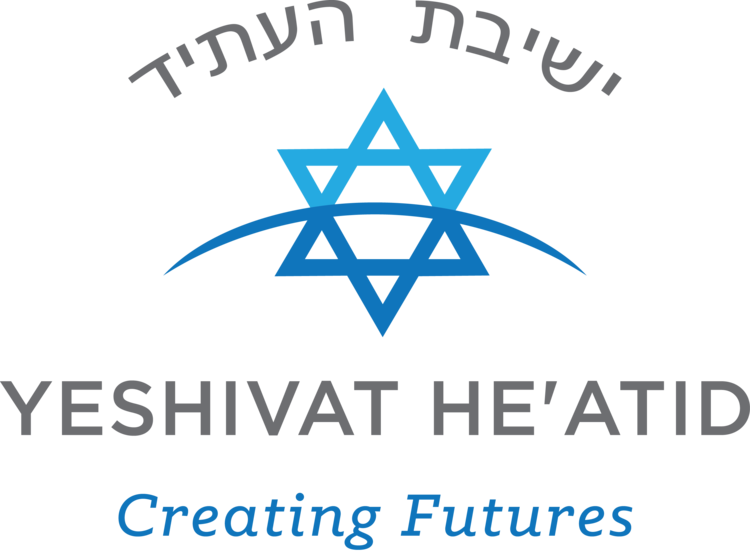The Jewish Standard profiles Yeshivat He'Atid →
This week's Jewish Standard article focuses on Yeshivat He'Atid. We'd like to clarify that Yeshivat He'Atid's educational model leverages technology with the ability to personalize the learning experience. We are NOT replacing teachers with computers -- we strongly believe that teachers are our most important asset. This technology, along with project-based learning and peer-to-peer learning, will make it easier for teachers to facilitate the application of learning. Our cost-savings are three-fold: 1. No baked-in scholarships, 2. we're able to reach more children inside the classroom, and 3. less administrative overhead.
You can read the entire article here. A related sidebar about educational technology can be read here.
Excerpts:
"Yeshivat He’atid, meaning school of the future, plans to open in Bergenfield next fall with a tuition substantially below those of other area day schools. The savings derives from the school relying on fewer teachers and more computers for instruction.
Gralla is currently director of special services at Davis Renov Stahler Yeshiva High School for Boys in Woodmere, N.Y., where he also teaches.
Last year, he served as head counselor of Camp Kaylie in the Catskills, which brought together children with developmental disabilities and those with regular abilities in an integrated camp setting.
Gralla points to two aspects of this work relevant to the new school.
“It was an integrated camp not only in the level of abilities, but on the religious spectrum, as well,” he said at a school open house held at Congregation Rinat Yisrael in Teaneck earlier this month. The Orthodox camp had counselors with knitted yarmulkes, suede yarmulkes, black hats, and even one counselor with chasidic garb, said Gralla.
Gralla said this proves the possibility of creating a school that does not need to pigeonhole itself to one variety of modern Orthodoxy, but that stresses unity as well as love of Torah, character development, generosity, and a love of the State of Israel.
It is the inclusion of a variety of abilities in the program, however, that may be most influential.
While Yeshivat He’atid is not targeted at special education students, Gralla and the schools other leaders believe that educational technology will enable it to offer a personalized, tailor-made curriculum.
“That’s advantageous for every student, regardless of whether it would be appropriate for them to be in a resource room, in an enrichment room, or in a regular room,” he said.
The Yeshivat He’atid model envisions students rotating between individualized computer-based instruction; interaction with teachers individually or in small groups; and small groups of students working together.
“This is not a no-frills version of education,” Gralla said. “This is not a design to cut corners and save a few bucks. This is creating 21st century thinkers, empowering them to succeed in life as collaborative learners, critical thinkers, and problem solvers.”
Because computer lessons will replace classroom lectures, teachers will have time to directly engage small groups of students. “Enrichment and remedial work gets done inside the classroom. It requires much, much fewer teachers than in the traditional model,” he said.
The school plans to have 20 students in each kindergarten and pre-kindergarten classroom, and 22 to 26 students in the first and second grade classrooms. Despite the larger class sizes, there will be fewer assistant teachers helping out.
At the open house, the school announced that its tuition will be $7,990 for pre-kindergarten, and $8,990 for the higher classes, inclusive of all fees and charges. The combination of tuition and extra fees can be nearly double that at some established area day schools.
Gralla looks to his seven children, ranging in age from three to 14, for insights to the world of early childhood education and the world of technology. Their experience in the world of computer learning, smart phones, and video bar mitzvah presentations has had a profound impact on the 39-year-old educator.
He tells of being in Manhattan with his teenaged twins, and them instantly locating nearby activities on their smartphones.
He tells of his eight-year-old asking, “What does Hashem do all day?” [Hashem is an indirect reference to God.] As Gralla reached for an answer, the boy said, “That’s okay, Daddy. I’ll Google it.” (Not in fact a good idea: Google’s top result on the query is an apparently Christian web site. On some questions, father really does know best.)
He also tells of one of his first-grade twins saying that the most fun she has is in computer class — where, in fact, “she is having interactive fun, but engaging in meaningful, significant learning,” he said.
Gralla entered the world of education as a Talmud scholar and rabbinic student at Yeshiva University.
“I really enjoy learning Torah very much,” he said. “I found I enjoyed teaching others. I liked preparing, giving over the material, and people’s questioning.”
When an opportunity arose at a special education program at YU’s MTA high school — his own alma mater — “I interviewed, got in, and didn’t look back,” he said.
What excites him about Yeshiva He’atid?
“Here we can easily pesonalize the curriculum for every single student,” he said. “They can go home and continue the work. Parents can follow their kid’s strengths and weaknesses.”
“In a traditional classroom, you have to make a test, have to mark the test, you have to enter all the grades, you have to tweak the lesson plan on a daily basis. The online learning model eliminates everything and allows teachers to do what they want to do, what they’re supposed to do, which is to facilitate learning.”
